Amputee Corinne Hutton poses nude for organ donation campaign
- Published
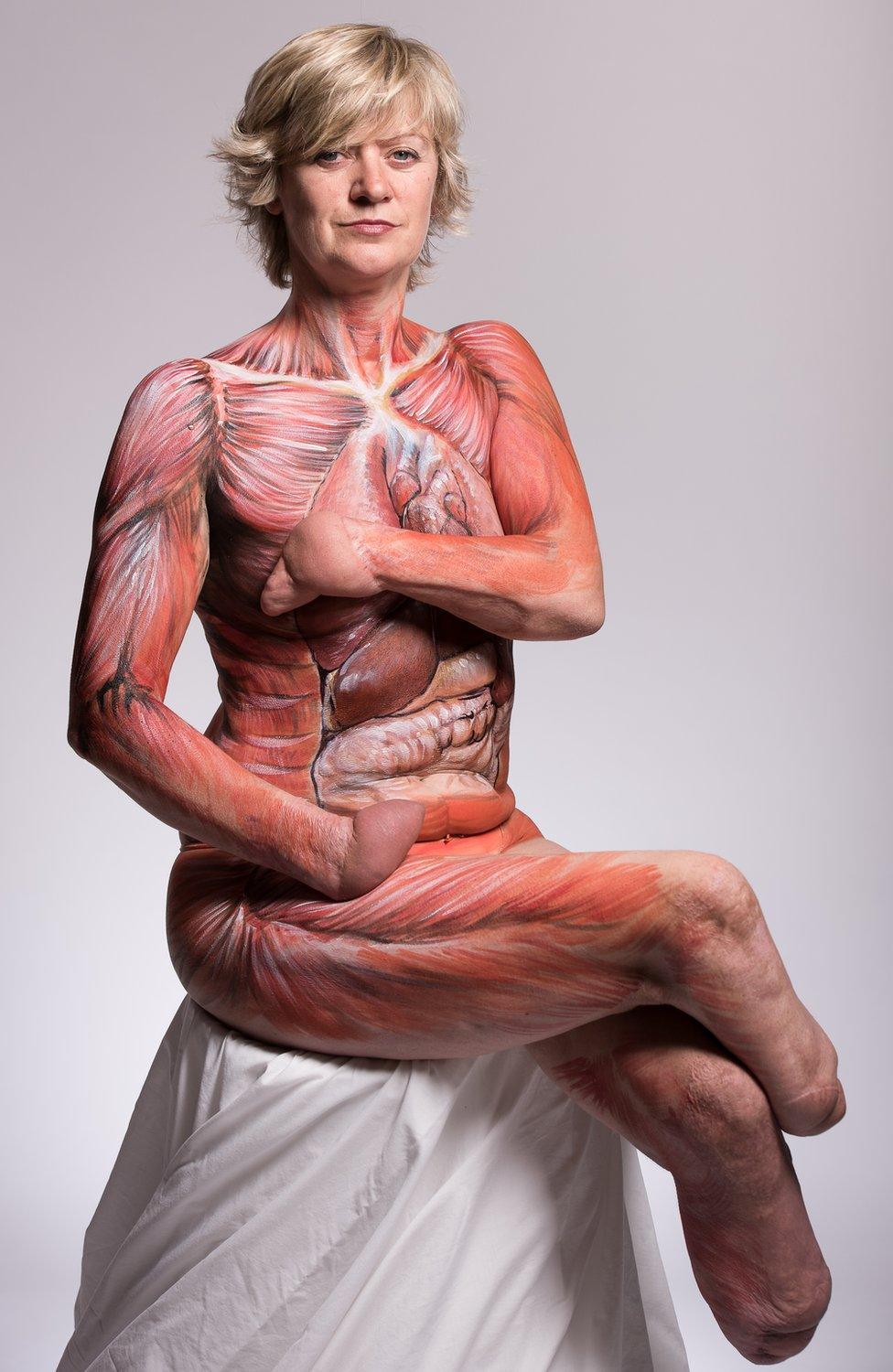
Body artist James Zooz painted "transplantable" tissue onto Corinne Hutton
A quadruple amputee seeking a double hand transplant has bared all in a bid to highlight organ and limb donation.
Corinne Hutton posed nude with her body painted with organs that are deemed transplantable to help raise awareness.
The images were beamed onto London landmarks on Tuesday night including the Royal Opera House.
The 46-year-old single mother from Lochwinnoch, Renfrewshire, has been on the waiting list for a double hand transplant for two years.
Ms Hutton, a former businesswoman, had both her hands and her legs below the knee amputated three years ago after suffering acute pneumonia and septicaemia.
Experts are trying to find suitable hands that match Ms Hutton's own blood group, skin tone and hand size.
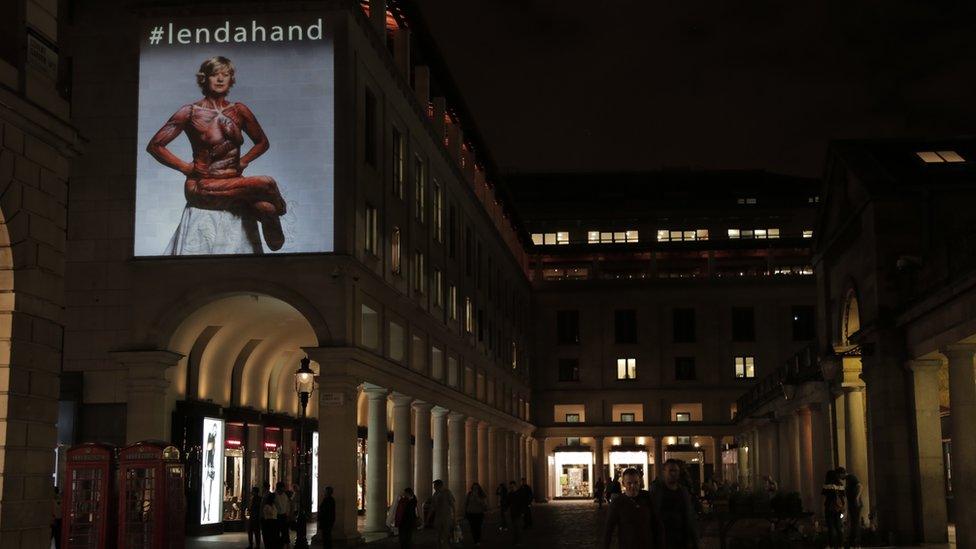
Images of Corinne Hutton were beamed onto London landmarks, including the Royal Opera House
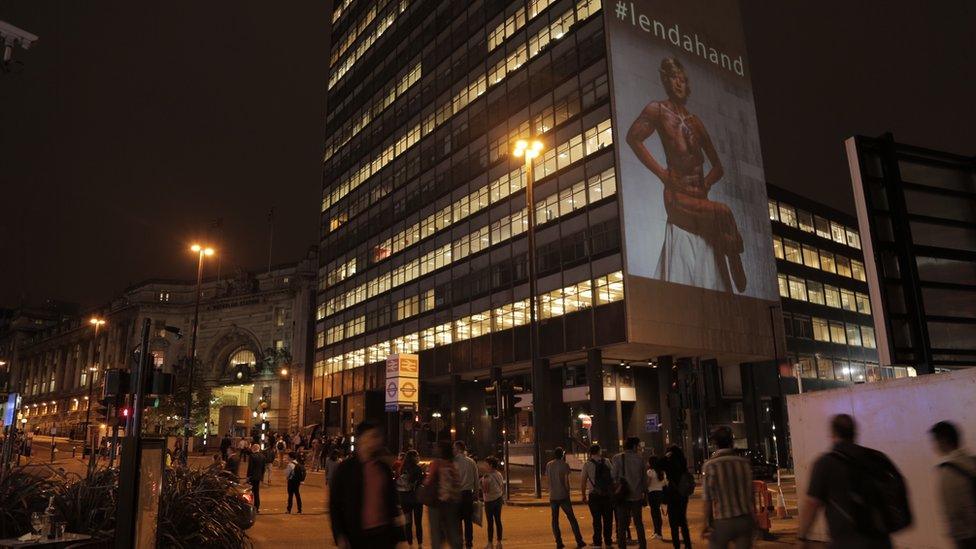
One of the images over commuters at Waterloo Station
The striking pictures of Ms Hutton have been released to coincide with Organ Donation Week.
They were projected onto a series of landmarks across London, including the National Portrait Gallery, Waterloo Station and the Royal Opera House in Covent Garden.
She told the BBC's Good Morning Scotland programme: "It took quite a few hours and there were different stages of exposure, so thankfully I feel quite well covered.
"I've managed to conveniently forget the fact I'm nude in the picture - it doesn't look like it."
Before she became ill, Ms Hutton ran her own graphics company based in Glasgow, but she now devotes her life to her charity Finding Your Feet.
Within four months of losing her limbs, she walked a mile through Glasgow city centre on prosthetic legs, in a bid to raise awareness of the charity which was set up to help other amputees.
Ms Hutton has since climbed Ben Nevis, abseiled, cycled 90km around the Isle of Arran, cycled in the Sir Chris Hoy velodrome, taken up skiing and had ballroom dancing lessons - raising more than £250,000 for her charity.
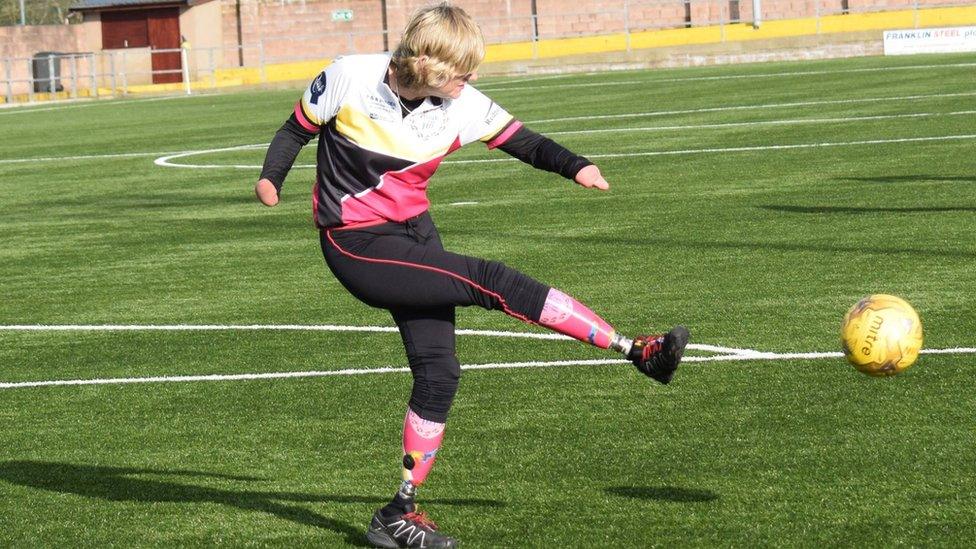
Ms Hutton has worked to help amputees through her charity Finding Your Feet
She said: "When you look at the organ donation system, you realise the depth of it and the complications of it and also the lack of donors.
"That was the whole point of doing it, to increase awareness of how few people are signed up to the organ donation register and how many people are dying every single day.
"I won't die because I don't have hands, but people are dying because they don't have organs."
One of the images shows the outline of a hand, highlighting Ms Hutton's own appeal for a donor.
The option to donate limbs is not recorded when someone registers to become an organ donor so medics have to seek permission from the families of potential donors after their death.
Ms Hutton added: "When you're talking about organ donation you've got to consider that there is a family here grieving and it's a horrendous situation, so I'm mindful of that as well - but you can't take them with you."
In July, Chris King became the first person in the UK to have a double hand transplant at Leeds General Infirmary.
The same surgeon, Professor Simon Kay, will lead on Ms Hutton's operation once a suitable donor has been found.
The hands now used by Mr King were initially identified as a potential match for Ms Hutton, but after they were ruled out for her, they were then used in the surgery for Mr King.
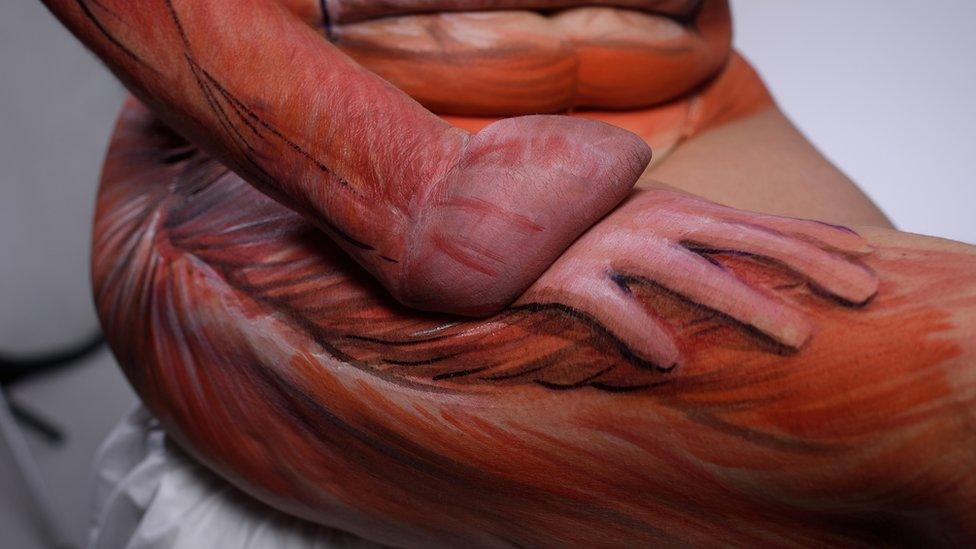
The body art depicted a hand Ms Hutton hopes to receive through a transplant
Finding a suitable match for Ms Hutton could prove difficult as she received 25 blood transfusions when she was ill.
Prof Kay said: "As one life is extinguished and grieving begins, great comfort can be felt by those who restore other lives with the courageous gifts of vital organs.
"Unfortunately, we rarely have choice over the end of our life, but we can make the choice to rescue other lives at that time by donating vital organs."
Referring to Ms Hutton's appeal, he added: "Our hands make us human, and gifting them at the end of life is one of the most human things we can do."
Sally Johnson, director of organ donation and transplantation at NHS Blood and Transplant, said: "The images of Corinne are very striking and draw important attention to some of the organs, tissue and limbs that can be donated; saving or transforming lives.
"Transplants can only take place if people are willing to donate and sadly around three people a day die across the UK in need of an organ transplant due to a shortage of people being willing to donate.
"I really hope that the images of Corinne will grab people's attention and encourage them to talk to their families about whether they want to be a donor. I hope that it won't be long before we can find a suitable hand donor."